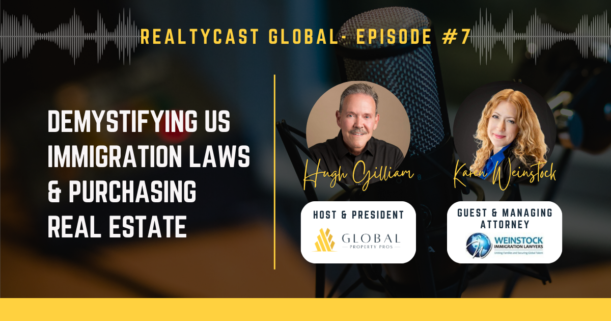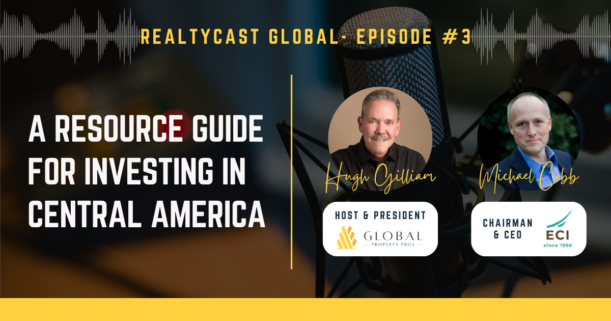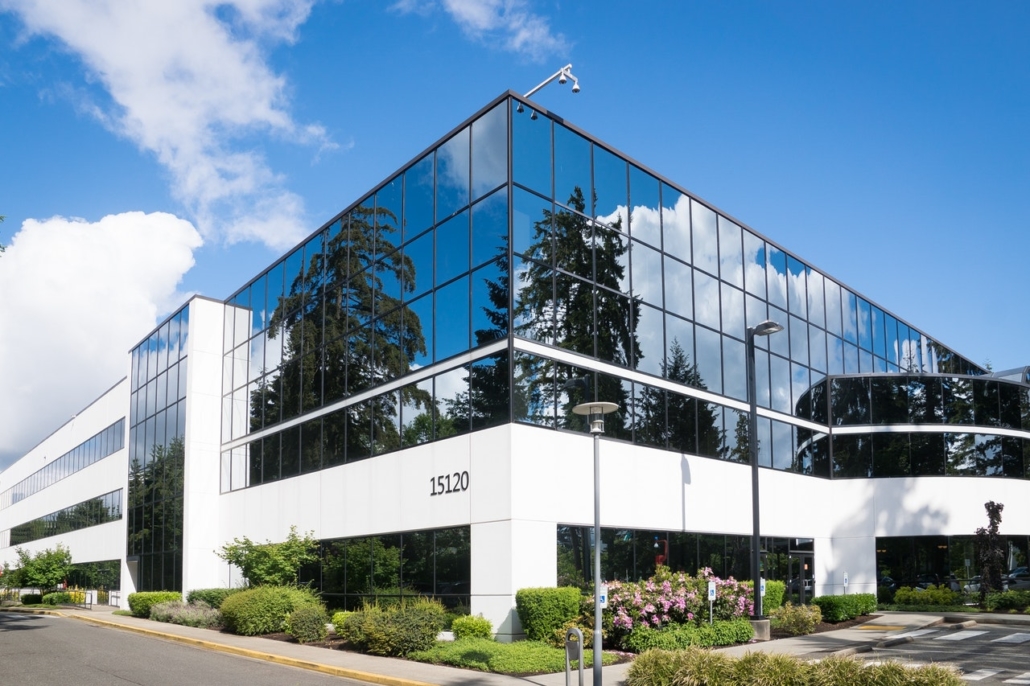RealtyCast Global #12: A Strategic Guide to Purchasing Real Estate in Panama with Arnulfo Arias
Welcome to episode #12 of RealtyCast Global – a global connection to all things real estate, hosted by Hugh Gilliam, president of Global Property Pros.
Panama has emerged as a focal point for global real estate investors, boasting a thriving market influenced significantly by the legendary Panama Canal.
The canal not only serves as a pivotal commercial waterway but also as a catalyst for the nation’s economic and infrastructural development. In this episode, we’re graced by the insights of Arnulfo Arias, a figure with a storied political background and an authority in post-dictatorship Panama. His extensive experience as a government official and advocate for foreign investment positions him as an invaluable guide through the intricacies of the Panamanian property market.
The episode embarks on an educational journey that ventures beyond the basics of real estate investments. It delves into the unique aspects of Panama’s legal climate and how it intertwines with property ownership rights. Arias illuminates the public registry system of Panama, an entity in operation since 1916, ensuring the security and transparency of property transactions. This registry stands as a testament to the country’s commitment to legal safety, rendering the need for title insurance obsolete in many cases.
As potential investors explore opportunities in Panama, understanding the local transaction process is crucial. The episode meticulously outlines each step, from earnest money agreements to the closing phase, accentuating the importance of clarity in terms and conditions to avoid pitfalls. The expert guidance offered by Arias emphasizes the necessity of due diligence, recommending working with licensed professionals and conducting a comprehensive title search to identify any potential issues, past or future, with the property.
The episode concludes with a robust discussion on the legal ownership transfer process. Arias underscores the gravity of drafting a public deed of sale through an attorney and the finality of recording the deed for public knowledge. He stresses the financial wisdom of securing transactions through a bank or secure method until the property’s title is officially registered. This not only solidifies legal ownership but also safeguards the interests of both buyer and seller.
Listeners of this episode are treated to a masterclass in real estate acquisition within Panama, an enlightening experience that provides clarity on the strategic approach to navigating this market. With the expert guidance of Arnulfo Arias, potential investors are equipped with the knowledge and confidence to stake their claim in the vibrant real estate scene of this strategic Central American nation.
For real estate agents looking to expand their business internationally, expose existing listings to a global pool of buyers, and connect with new clients, check out Global Property Pros.
For Property Buyers & Sellers seeking assistance in the international market, check out RealtyHive’s property marketing solutions.
SUBSCRIBE to the RealtyCast Podcast to be notified when new RealtyCast Global episodes air:
About the Guest – Arnulfo Arias:
Mr. Arias’s legal practice focuses mainly on commercial and civil matters, plus taxation and government administrative issues. Corporate practice includes advising corporation structure, corporate governance issues, living wills, estate planning structures, and civil and commercial contracts in general.
Arnulfo is an activist in social and humanitarian programs, a writer and weekly columnist, and is heavily involved in politics by family tradition. His grandfather, Arnulfo Arias Madrid, was president of Panama on three different occasions, during which Arnulfo was appointed as Director of Foreign Direct Investments of Panama.
PRATICE AREAS
- Civil law
- Business and Corporate Law
- Tax law
- Administrative law
- Real Estate Law
- Education & Bar Admission
- Law and Political Science, USMA
- Taxation, UNESCPA
- Political Science, University of Lima, Peru
- Foreign Direct Investment Studies, Chinese Culture University, Taipei, Taiwan
- Associate in Arts, Florida Community College, Jacksonville Florida, USA
- BAR ADMISSION: Since 1998
- LANGUAGES:
- Spanish & English
Website: https://navarroguardia.com/
Phone: +507 225-0990
Email: aarias@navarroguardia.com
About the host – Hugh Gilliam:
Hugh Gilliam co-owned a national transportation company, created a land development business, and worked as a general contractor in residential and commercial construction for over two decades. Hugh also co-founded an international distribution company and successfully negotiated and contracted with 135 sales representatives in the United States, Canada, France, Brazil, Japan, and the Netherlands.
Today, Mr. Gilliam is affiliated with RealtyHive, LLC where he serves as Director of International Real Estate and President of Global Property Pros. His duties include involvement in commercial and residential transactions, plus promoting marketing systems and lead generation platforms.
He is also co-founder of the luxury digital magazine, DOORWAYS INTERNATIONAL, powered by RealtyHive, which serves as a platform for Brokers and Buyers throughout 70 countries.
Hugh’s Designations Include:
- Certified Luxury Home Marketing Specialist
- Certified Distressed Property Export
- Certified International Property Specialist
- Certified International Investment & Immigration Specialist
- Transnational Referral Certification
Hugh’s Memberships Include:
- Georgia Association of REALTORS
- National Association of REALTORS
- International Real Estate Federation (FIABCI-USA)
- Asian Real Estate Association of America




















